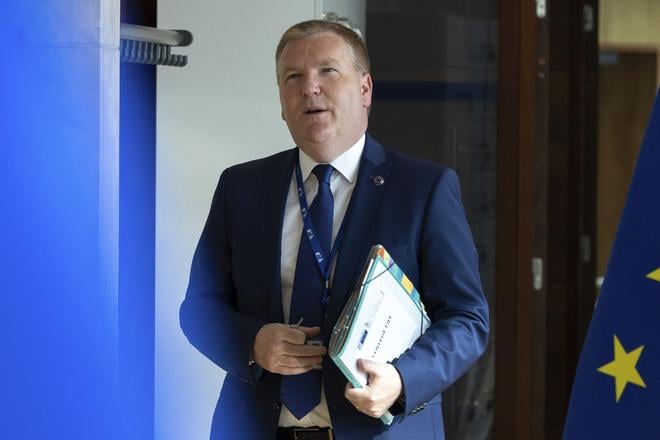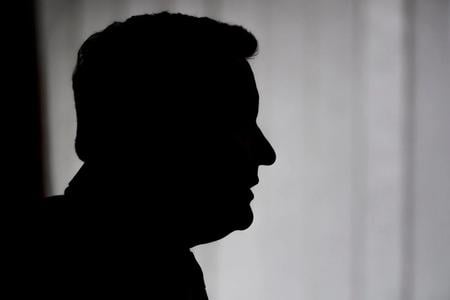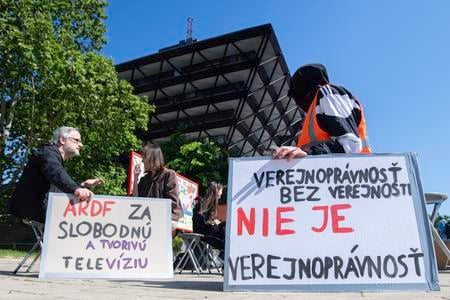The European Commission has issued a pointed warning over democratic backsliding in Slovakia, raising concerns about judicial independence, anti-corruption efforts and the growing pressure on media and civil society.
In its 2025 Rule of Law report, published on Tuesday, the Commission concluded that Slovakia has made “limited progress” in addressing serious governance concerns identified in previous years. Of seven reform recommendations issued to Bratislava last year, six remain entirely unimplemented. The only partial improvement cited was a modest tightening of conflict-of-interest legislation.
Slovakia’s progress on EU Rule of Law recommendations (2024)
Judicial Council: No progress on protecting its members from political dismissal.
Judges’ liability: Limited progress on safeguards for prosecuting judges under the “abuse of law” offence.
Conflicts of interest: Some progress, but no action on lobbying or asset declaration rules.
Anti-corruption: No progress on protecting corruption cases from political interference or limiting the general prosecutor’s powers.
Media: No progress on ensuring independence of public broadcasters.
Journalist safety: No further action on protecting journalists or reforming defamation laws.
Law-making: No progress on public consultations or reducing fast-track legislation.
Judiciary facing political interference
Concerns over judicial independence dominate the Commission’s findings. A set of legal changes introduced by Slovakia’s government – led since 2023 by Prime Minister Robert Fico’s left-populist Smer party – have sparked fears of political encroachment on the courts. These include the introduction of performance-based bonuses for judges and a shift in disciplinary powers to the Judicial Council, a body already under scrutiny for lacking safeguards against undue political influence.
Brussels also took issue with the removal of several Judicial Council members before the end of their terms, warning that such moves fall short of European standards and risk politicising the judiciary.
Anti-corruption framework weakened
Slovakia’s anti-corruption efforts – once considered a bright spot in the region – have also been undermined. The dismantling of two key institutions, the National Crime Agency and the Special Prosecutor’s Office, has disrupted investigations and, in some instances, led to the downgrading of serious corruption cases to lesser offences.
Of particular concern is Section 363 of Slovakia’s Criminal Procedure Code, which grants the general prosecutor broad discretion to cancel prosecutorial decisions. Critics argue this provision has been used to shield politically sensitive cases from prosecution. The Commission echoed these concerns, noting that recent high-profile investigations have been halted under “controversial circumstances”.
While Bratislava has announced a new anti-corruption strategy, key elements such as improved lobbying transparency and stronger asset declaration rules remain absent.
Media freedom and civil society under pressure
The report describes a deteriorating environment for journalists. A government-led overhaul of the public broadcaster, Radio and Television of Slovakia (RTVS), has been criticised by press freedom advocates as an attempt to curb editorial independence. Proposed media laws would grant the state greater regulatory control over content without corresponding protections for journalistic autonomy.
Verbal attacks on journalists by leading politicians – including Fico himself – have continued, the Commission said, adding that criminal defamation laws remain unchanged and threats against reporters persist.
Civil society organisations, particularly those with international funding or advocacy mandates, report increasing administrative burdens and suspicion from public authorities.
Democratic processes bypassed
The Commission also raised the alarm over the frequent use of fast-track legislative procedures. Nearly half of the 131 laws adopted by Slovakia in 2024 were passed without standard public consultation. Brussels warned that sidelining public debate in this manner undermines transparency and trust in democratic institutions.
No EU sanctions – yet
Despite the severity of the findings, the European Commission has not moved to suspend EU funds or initiate infringement proceedings via the European Court of Justice – measures it has taken in the past against Hungary and Poland.
Instead, it has pursued quiet diplomacy, including informal warnings to the Slovak government over questionable reforms. A recent audit examined whether Slovakia’s legal changes breached conditions tied to its allocation of EU recovery funds. Ultimately, the Commission did not suspend payments, citing confidence in the European Public Prosecutor’s Office (EPPO), which continues to operate independently within Slovakia and investigate potential misuse of EU money.
Government: ‘misjudged and unfair’
In a defiant response, Slovakia’s Justice Ministry welcomed what it called a “more balanced tone” in this year’s report but sharply criticised the Commission’s methodology and objectivity.
“The Commission continues to ignore the specific legal and political context in Slovakia,” the ministry said, accusing Brussels of relying on “unverified or selectively interpreted” information. Officials also complained about insufficient time to comment on the draft findings and called for greater transparency in how conflicting data is evaluated.
Pointing to a 2024 review by the European Court of Auditors that urged improvements to the Commission’s reporting process, the ministry said it supports reforms to strengthen source verification.
The government also sought to deflect criticism onto its predecessors. For instance, the controversial offence of “bending the law” – which allows judges to be prosecuted for misapplying legislation – was introduced by a previous administration. While the current government cannot repeal it due to conditions tied to EU funding, it has added procedural safeguards that the Commission acknowledged as a “partial improvement”.
Justice officials also defended Section 363, calling it “a vital tool for protecting legality”, and pointed out that prosecutors may be held criminally liable for misuse.
Corruption figures disputed
Bratislava also rejected the EU’s portrayal of backsliding on corruption, citing national data showing that 240 individuals were prosecuted for corruption in 2024, up from 160 the previous year.
State Secretary Milan Hodás said the government had made progress “where previous administrations failed”, adding: “We welcome continued dialogue, but Slovakia must be assessed on current facts, not outdated assumptions.”
What the EU recommends Slovakia should do
Judicial Council: Add rules to protect members (especially non-judges) from unfair dismissal.
Judges’ criminal liability: Set clear safeguards when prosecuting judges for misusing the law.
Transparency & integrity: Regulate lobbying, improve asset declaration rules and checks, continue reforms on conflicts of interest.
Anti-corruption: Ensure independent handling of major corruption cases and limit the general prosecutor’s power to cancel final decisions.
Public media: Strengthen editorial independence and governance in line with EU standards.
Journalist protection: Improve safety and working conditions for journalists, reform defamation laws.
Law-making: Involve the public more and reduce overuse of fast-track legislation.





